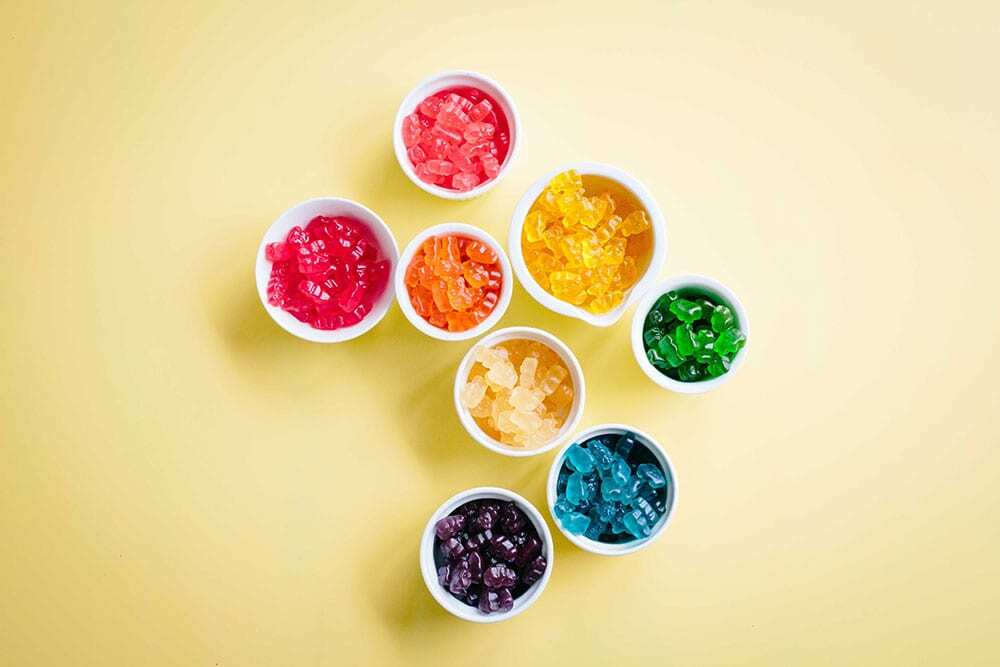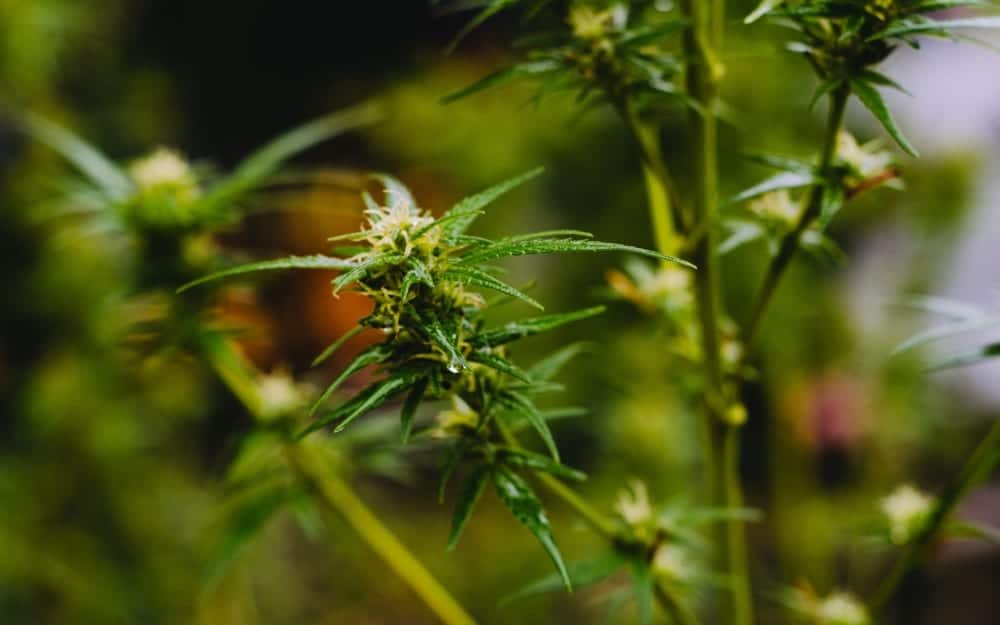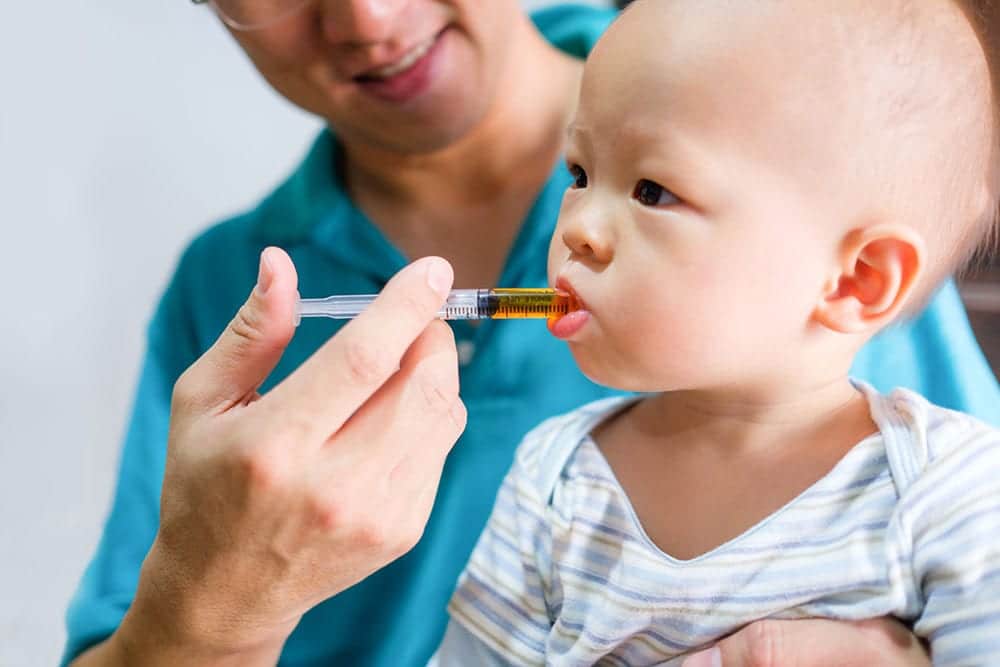The use of medical marijuana is on the rise, with approval for medical use in 33 states, as of August 2019. Medical marijuana and one of its compounds, CBD, has been used to treat a number of symptoms in adults, such as those associated with medical conditions including AIDS, glaucoma, PTSD, Parkinson’s disease, fibromyalgia, forms of epilepsy, chronic pain and cancer. However, adults are not the only people who have reportedly experienced benefits of medical marijuana.
Parents have grown privy to information about the reported health benefits of the marijuana (or cannabis) plant, and many have already administered it to their children. If you are interested in or considering CBD for your child, read on to see what recent research says as well as some considerations for you to keep in mind.
What is CBD?
Cannabidiol, or CBD, is one of two main cannabis compounds found in marijuana that has been praised for its many health benefits in adults. Many people are uncertain if CBD products are safe for kids because marijuana makes people experience a high, but not all parts of the plant bring about this side effect.
CBD does not get users high, unlike the other well-known compound of the cannabis plant, known as THC (or tetrahydrocannabinol). It is also non-addictive and has a low side-effect profile, according to the journal Cannabis and Cannabinoid Research, which makes it seem like a viable option for children.
CBD oil is legal according to U.S. federal law, but according to the Drug Enforcement Administration (DEA) and dynamic state laws, products containing cannabinoids are only legal in states in which marijuana is legalized.
CBD products are available in a variety of forms, including edibles, balms, tinctures, beverages, topical products, vaping liquids, gel caps, gummies and balms and CBD oil.

What We Know About CBD Use
The marijuana plant has been used for ages for medical purposes across the globe. But in 1970, marijuana and any other products related to cannabis were deemed to be illegal in the United States.
As a result, there has been very little research on marijuana and CBD, considering, there is much research to be hashed out – especially regarding CBD use in kids. However, many researchers, including those funded by the National Institutes of Health (NIH) continue to explore the use of CBD, THC and other cannabinoids for medical treatment. Scientists also have been conducting clinical and preclinical trials of marijuana and its ability to treat symptoms of numerous health conditions.
In the meantime, according to numerous pediatric medical professionals, including Dr. Paul Mitrani, clinical director at the Child Mind Institute, there are potential risks with giving CBD to children before more clinical trials are conducted. Dr. Mitrani states, “In regards to treating mental health disorders in children and adolescents, there is a lack of evidence to support its use” and suggests that parents hold off on giving CBD to their children – at least until more research can be done to determine its safety for children.
Although there are not many clear risks with CBD use, it is not entirely without side effects, such as changes in appetite, fatigue, diarrhea and interactions with some medications.

Many experts remain positive about the potential CBD has to offer. Although most of the research has been conducted in animals, three recent placebo-controlled, double-blind, randomized trials in humans have found that a CBD-based drug called Epidiolex has effectively reduced seizures in individuals with two rare forms of epilepsy, known as Lennox-Gastaut syndrome and Dravet syndrome.
This is good news in the CBD community as these landmark studies prompted the Food and Drug Administration to approve the drug in June of 2018. Epidiolex was the first prescription CBD-based medication ever to be approved by the FDA. This approval was monumental in helping to legitimize CBD.
CBD for Seizures
The principal investigator on the Epidiolex trials and director of NYU Langone’s Comprehensive Epilepsy Center in New York City, Orrin Devinsky, M.D., asserts that there is evidence that CBD is capable of reducing “the most important and disabling seizures” in people with Lennox Gastaut or Dravet syndrome. He also recognizes that it does not work for all patients with the two syndromes and that some studies show that CBD may be ineffective for other seizure disorders.
Epidiolex is different from many of the CBD sold in retail stores or online. One such way is that it is FDA-approved as a prescription drug. It is also highly purified and is manufactured with several safeguards in place to ensure that it only contains what is on the label and with the correct amount. It is also guaranteed to be free of contaminants.
CBD products sold in retail stores and online are often unregulated, which can make it difficult to know whether the labels are accurate. Many over-the-counter CBD products include higher dosages than what is on the label. It does not mean you should never try over-the-counter CBD products for your child’s seizures – it just means that you should talk with your child’s pediatrician first and try the product with safety in mind.
CBD for Anxiety
A research group at New York University investigated the potential of CBD in the treatment of anxiety in a 2015 study, led by Esther Blessing, PhD., of New York. Promising evidence was found in this review of 49 studies, which also suggested that further study is needed.
Animal studies have produced preclinical evidence that demonstrates the efficacy of CBD in the reduction of anxiety behaviors that are related to multiple disorders, according to Dr. Blessing. Included in those disorders are social anxiety disorder, OCD, anxiety disorder, panic disorder and PTSD.
The review also found results that were supported by experimental findings in humans that suggested CBD has few sedative effects as well as an “excellent safety profile.” However, it is important to note that these findings were based on placing subjects who are healthy in situations that are stimulated to produce anxiety. From there, CBD’s impact was then measured against each subject’s anxiety response. Further studies need to be done to determine whether CBD treatment would produce effects that were similar for patients struggling with anxiety and also the extended use of CBD.
CBD and ADHD
Although not much research has been executed directly on the impact of CBD on ADHD symptoms, there is evidence on the compound’s ability to ease anxiety symptoms. Anxiety tends to accompany ADHD in some people. Dr. Devinsky (as mentioned above) says that although he does not recommend CBD for ADHD for all children, some kids with an anxious variety of ADHD may benefit from it.
CBD for Pain
CBD may treat pain, including migraine pain, by way of the endocannabinoid system. CBD can interact with the body’s receptors that impact the pain messages sent from cell to cell. There is also research that suggests that CBD may be able to fight inflammation, which may also have a positive impact on pain.

Benefits and Risks of CBD
If you are considering giving CBD to your children, it is recommended that you consider the following benefits and risks associated with CBD in kids.
Talk with your pediatrician
Although CBD and other products containing cannabinoids are making waves in the medical community, it remains controversial according to a number of sources to use CBD to manage childhood conditions without first talking with a pediatrician. By teaming up with your child’s doctor, the two of you can collectively monitor possible side effects. A pediatrician can also help you to avoid any medication interactions.
Keep an eye out for side effects
Research findings have unveiled a few side effects with CBD use – especially in comparison to the many powerful prescription medicines used to treat numerous childhood conditions. Despite this, little is known about any long-term risks associated with taking CBD and parents giving it to children should proceed with caution. It has the potential to interact with over-the-counter and prescription drugs, so if your child takes any, you need to be extra cautious.
Start slowly with a low dosage
It can take time to determine which dose of CBD is appropriate for a person. There is no one-size-fits-all dosage, and it can take a little bit of trial and error to determine the right product and dosage for any person – including children. Start with a low dose and gradually increase to protect against side effects.
Store CBD safely
Be sure to keep CBD out of the reach of children just as you would any other medication.
Only purchase reputable products
CBD products sold in retail stores and online are not required to undergo rigorous testing, which means some may be of less or questionable quality. Twenty-six percent of CBD products bought online were found to contain less CBD than what the label listed, according to a 2017 study in the Journal of the American Medical Association. Keep this in mind and look for CBD products from companies that can produce third party testing and a Certificate of Analysis, or COA, to indicate how much CBD (and THC) is contained within the product, and how the product performed when checked for contaminants.
The CBD Industry
The CBD industry is growing rapidly, and a large number of products are being produced.
Although there is believed to be a wide range of health benefits for kids and there are hordes of products available on the market, it is best to consider all of the research and talk with your child’s pediatrician before moving forward with administering CBD to your children to reap the benefits.
It sometimes seems like there are more medicines than there are illnesses, making it difficult to discern which you should (or shouldn’t use) straight. After the Food and Drug Administration (FDA) released a warning in 2008, recommending cough and cold medicine to be kept out of the reach of younger children, many parents and caretakers responded by avoiding the use of typical cold medicine for kids – and even other over-the-counter (OTC) medications in general. Concerned parents opted instead for alternative treatments, including those containing only homeopathic ingredients. Other parents continued to question whether or not these fears are unfounded. Here we seek to unveil the facts about medicine for kids.
Warnings Surrounding Cold Medicine for Kids
Digging a little deeper into the FDA’s public health advisory regarding children’s cold medicines, the initial statement stating that:
“Questions have been raised about the safety of these products and whether the benefits justify any potential risks from the use of these products in children, especially in children under 2 years of age.”
It is important to note that the majority of problems with children’s cold medicine, according to the FDA, typically take place when the medication is given improperly. If cold medicine is given too often or if more than one cold medicine is given with the same active ingredient, this is when problems are most likely to occur.
The Consumer Healthcare Products Association (CHPA) eventually expanded the warnings surrounding cold medicine for kids to older children as well, stating that children should not use cold medication if they are under the age of four.
The numbers continue to climb. According to the American Academy of Pediatrics, it is not recommended to give over-the-counter cough medicine or cold medicine to kids under age 6. In 2014, the AAP asked the FDA to make this recommendation, requesting that OTC cough and cold medicine manufacturers change their dosing to weight-based dosing rather than age-based, as weight is a better way to determine the correct dosage.
Additional Considerations and Risks Regarding Children’s Cold Medicines
One concern among caretakers of children is that cough and cold medicines were only studied in adults – not children. The results of the studies were merely applied to children, without ensuring that adults and children would react in the same way to the medications. Even in adults, the evidence fails to strongly prove that cough and cold medications make people get well any faster. They are also unable to keep colds from turning into something else, such as a sinus or ear infection or pneumonia.
Thousands of children end up in the emergency room annually after taking cold medicines, according to the CDC, with nearly two-thirds of those cases taking place after cough or cold medicine was taken by children while unsupervised.
Ingesting too much cough or cold medicine can bring about dangerous side effects. In addition to children taking the medication while not being supervised, children can also overdose if parents accidentally give too high a dose or mix medications with ingredients that do not interact well.
Furthermore, recent research continues to show that the efficacy of over-the-counter children’s cold medicines is low. The associated side effects of these medications, although the risk is low, do continue to persist – especially in young children, which continues to leave parents and caretakers concerned about the safety and thus distrusting of certain medicine groups.
Children’s Cold Medicines in Question
Four categories of cold medicines have been questioned by medical professionals and parents alike. These include:
- Cough expectorants (guaifenesin), such as Mucinex:
- Decongestants (phenylephrine and pseudoephedrine), such as Sudafed: Decongestants have the ability to help relieve symptoms of a stuffy or runny nose, but they have been shown to make some children irritable or hyperactive.
- Cough suppressants (dextromethorphan or DM), such as Robitussin: Cough suppressants may help a child who has a cough that is interfering with sleep or daily activities. Some prescription cold medicines can cause drowsiness.
- Some antihistamines (chlorpheniramine maleate, brompheniramine, and diphenhydramine), such as Benadryl or Claritin: Although often used for keeping a runny nose associated with allergies at bay, antihistamines offer effects that can help treat cold symptoms. They are also found in some cold medications, such as Children’s Dimetapp Cough & Cold Elixir and Vicks NyQuil Children’s Cold.
Should My Kid Use Cold Medicine?
Before deciding to give cold medicine to your child, keep in mind the recommendations from the FDA surrounding this type of medication.
- Never give any adult medicine to a child. Only use medicines that have been designed for safe use by children.
- Do not use any cold or cough medicine in children under the age of four, unless otherwise advised by a pediatrician.
- Follow dosing instructions closely, as listed on the box.
- Use the dropper, dosing cup, or measuring spoon that is included with any OTC kids medicine.
- Never administer a cough or cold medicine to a child if he or she takes another prescription or over-the-counter medicine without first checking with a doctor.
- Reach out to your child’s doctor if symptoms do not improve or worsen within a few days of first giving the medication.
It is also important to know that most children do not need cough and cold medicines. Some parents immediately reach for them at the first sign of a cold, but it is best to hold off. Below are more things you should consider before giving cough and cold medicines to your child:
- Never give honey or any OTC medication (including homeopathic) to children under the age of 12 months of age due to the risk of botulism.
- Use a saline nasal spray and suction bulb to give your child symptomatic relief of a cold, rather than cough and cold medicine. Also, put a humidifier in your child’s room and encourage plenty of fluids.
- Allergy medicine does not help cold and cough symptoms if the illness is from a viral infection.
- Don’t give any cold or cough medicine to your infant or toddler under the age of two for any reason.
Side Effects of Cold Medicine
If you choose to give your child medicine, watch for allergic reactions or other side effects. You may have received documentation from your pharmacist or may find product packaging with information regarding side effects.
If your child experiences hives, rash, diarrhea, or vomiting after taking medicine, reach out to your doctor.
If your child begins wheezing or has trouble breathing or swallowing, seek emergency medical care.
Some children develop drowsiness after taking cold and cough medicines or hyperactivity. Be sure to report to your doctor if this happens.
Remember to weigh the risks against the benefits when deciding whether to give your child cold and cough medicine and read the dosing carefully – and as always, keep the medicine out of the reach of children.
CBD Clinicals is reader-supported. When you buy through links on our site, we may earn an affiliate commission. Learn more


















